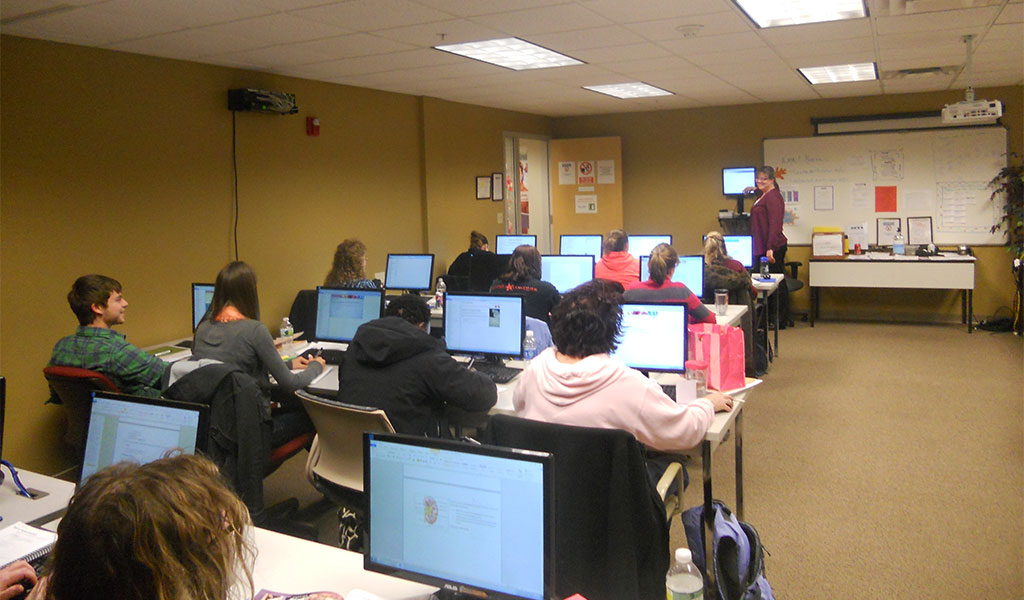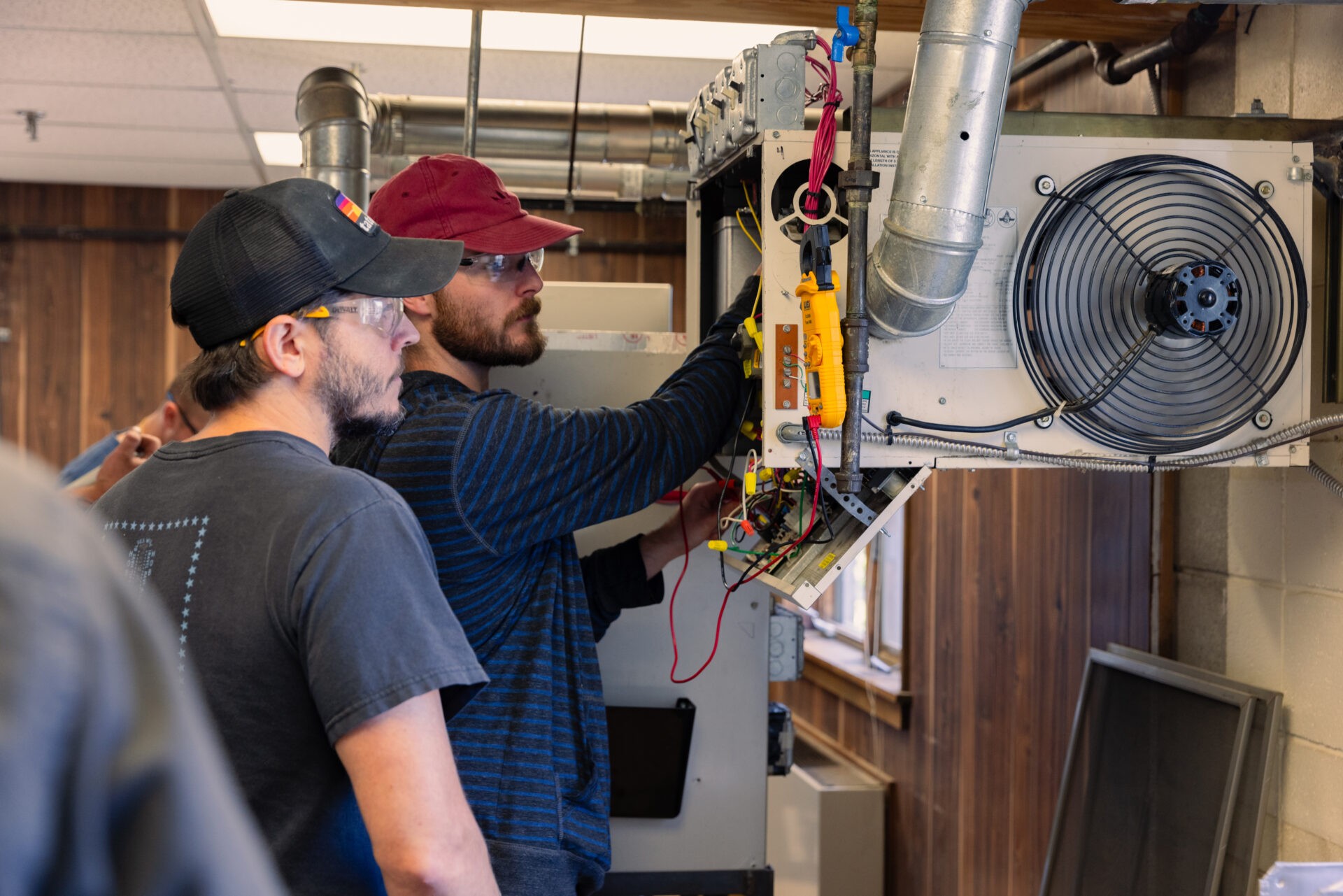To summarize, a Trade School (also referred to as a vocational school or career college) is a postsecondary educational institution that prepares people for careers in different skilled trade industries. Additionally, industry certifications are awarded as part of the training programs.
Moreover, trade schools use hands-on lessons that are concentrated on a specific career. Trade schools also have connections with local and national employers that allow students to find jobs right after graduation.
This article explains in detail what a trade school is and explains how you can apply for enrollment. So let’s get started!
What's In This Article?
What's The Diffence Between Trade Schools, Vocational Schools, Technical Schools, And Career Colleges

To begin, it’s important to know the difference between a trade school, vocational school, technical school, or career college. While the terms are mostly interchangeable, there are some important differences.
Trade School
Overall, trade schools are postsecondary institutions that train people to work in the skilled trade industries. During training, students learn using hands-on lesson plans in shops and labs. Students must also meet a required number of on-the-job hours to graduate.
Vocational School
To sum up, vocational schools are either secondary or postsecondary institutions that teach specific job skills. Usually, they’re funded by the government and taxpayers. And, it takes a year or two to finish their programs.
Technical School
Basically, Technical Schools (also known as technical colleges) are educational institutions similar to trade schools. But, the training at a technical school is less hands-on and more like a traditional college classroom or lecture.
Career College
For the most part, career colleges are privately owned and offer associate’s level degrees for specific careers. Their programs also take a couple of years to finish.

Trade Schools And 4-Year Colleges: What's The Difference?
To be clear, there is a long list of differences between a trade school and a traditional 4-year college. For example, trade school students graduate in a fraction of the time it takes for traditional college students.
And another example is the cost of school. Because on average, 4-year college students spend about 3-4 times the amount trade schools charge.
But there are too many differences to list here without this article turning into a novel. That is why you should read our blog post: Trade School vs College: What’s The Difference?
Career Training Programs
Skilled trade work in recent decades has been scrutinized and seen as low-paying jobs that no one wants. But, in reality, skilled trade workers are well paid and highly in demand across the country.
And chances are that you don’t realize how many skilled trade industries exist and how important they are for society.
Currently, NTI’s curriculum includes healthcare programs, HVAC/R programs, technology programs, and commercial trucking programs.
The Benefits Of Trade Schools
There are numerous benefits to career training. To summarize, those benefits include:
- Nationally Recognized Industry Certification. Firstly, one of the biggest benefits of a career program is the certifications you earn along the way. Certification proves to employers that you are professional, knowledgable, and qualified to work in your field. Industry certification also leads to higher wages and more opportunities.
- Time To Graduate. Secondly, training programs at NTI can all be completed within 1 year. And some programs, like Phlebotomy/EKG Technician, can be completed in under 2 months.
- Tuition Costs. Thirdly, due to the shorter programs, trade schools are much cheaper than other schools. And, most programs qualify for Federal Financial Aid. Additionally, you can begin the financial aid process by visiting fafsa.gov.
- Focused Hands-on Training. Next, career school training programs specifically focus on the skills you need to know to work in your chosen field. And, those skills are taught using hands-on learning. To clarify, that means you’ll spend more time in shops and labs than in a classroom.
- Job Placement Assistance. Finally, after you graduate you’ll have a full team supporting you in your job search. Because trade schools focus on career training, they offer things like resume prep and employer connections. That is why trade school graduates find jobs so quickly after graduating.
How Do I Enroll In A Career Training Program?
Simply complete the form below and we’ll contact you with more information about career training at NTI.
Related NTI Blogs

Understanding the Difference Between CDL A vs. CDL B Licenses and Training: A Deep Dive from Northeast Technical Institute in Maine
If you’re considering a career in commercial driving, one of the first decisions you’ll face is choosing CDL A vs. CDL B License . At
How to Build a Brighter Future: College Funds and Investments for Your Child’s Success
At Northeast Technical Institute (NTI), we understand the importance of securing your child’s future. Whether they aspire to attend a four-year university, pursue a career

The Evolution of Trade and Tech Schools in America: Shaping the Nation’s Workforce
In the tapestry of American education, trade and technical schools stand out as vibrant threads, weaving together the practical skills and innovative spirit that have long defined our nation. From their humble 19th-century beginnings to the post-World War II boom and beyond, these institutions have been instrumental in shaping the US workforce and driving economic growth. Let’s embark on a journey through time to explore the rich history of trade and tech schools in America.








